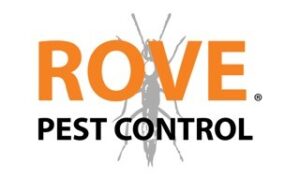Bees play an important role in the environment as well as the economy. Are humans a major threat to bees, and could some beekeepers be to blame?
Why bees are important
Without bees, we might not even be able to survive and thrive as we do today as a species. Bees are responsible for pollinating roughly 1/3 of the crops we eat as humans.
That’s around $20 billion dollars worth of crops each year in the US alone. Aside from the huge impact on the available food, it also represents a significant portion of the US economy.
There are only so many animals out there that actually pollinate flowers and crops. Bees make up the highest percentage of the world’s pollinators. A few examples of what is pollinated by bees include vegetables like soybeans, asparagus, avocados. Also, many fruits such as cranberries, peaches, cherries and more.
They also pollinate plants like alfalfa and clover, which is a food source for many animals. They are even responsible for pollinating other plants that aren’t food related like cotton. These are just a few examples of the chain production that bees are a part of, not to mention all the uses for honey and bees wax.
Could transporting bees be a major problem?
Word seems to be spreading more and more that bees provide a large benefit to humans across the world. The issue is that bee numbers have been dropping significantly. Could the ways people use bees be a cause of their dropping numbers?
Did you know that some beekeepers make a living by packing up and transporting hundreds of hives and thousands of bees across the country to pollinate different crops throughout the year? Some beekeepers can rotate and move hives as many as 3 or 4 times a year across the country to hit different fruit, plants, or crop seasons.
These close quarters required for shipping and the travel exposure to new environments can sometimes lead to the quick spread of diseases, or threats to the bee populations being transported. Unfortunately, stopping this kind of shipment across country could lead to billions of dollars in revenues lost by businesses each year on top of a massive chunk of the food supply not being pollinated either.
A worldwide scale
In addition to shipping domestically to pollinate crops, there are also some cases where bees are being shipped and traded internationally. This has lead to the spread of diseases that may have been contained to one location of the world. What could have been addressed on a single nations to-do list now has had the chance to spread internationally and damage bee populations throughout the world. Introducing new diseases and predator threats to bees in many parts of the world is a significant and constant threat to bee populations.
Bee experts say that a bit more regulation and care could be an effective way to reduce these problems. Limiting the commercial migration of bees to remain within their own countries, or at least having much higher standards for care when shipping bees internationally.
Another threat to bee populations comes from hobbyist beekeepers
Recently there have been various do-it-yourself beehive ads online promoting beekeeping and harvesting honey with ease. While these new leaps in technology are great, they unfortunately have a downside, and it has been negatively impacting bee populations as well.
Many people start new hobbies with all the best intentions. Unfortunately, along the way, some people lose interest or don’t commit enough to make their hobby worth while. This tends to be common with beekeeping. Unlike throwing out an old piece of work out equipment in your garage, discarding a beekeeping hobby can have serious implications.
Where you live, hive size, and quantity of hives desired are all factors that impact the amount of regulations that apply to a given situation for a hobby beekeeper. This can lead to several problems that have caused harm to the bee populations.
More harm than help?
Hobby beekeepers that give up on their hobby can end up killing off entire populations of bees. Varying rules and regulations across the county can lead to improper handling of the bees. This can end up spreading disease and predators among local bee populations.
These small pockets of improper treatment and handling of the bees can quickly spread to major hives. These hives then could potentially be shipped to other parts of the country as well as the world. Many of the people trying to do a good thing and help bee populations as a hobby can inadvertently end up harming them instead.
Some advised suggestions to protect bee populations from beekeeping enthusiasts are stricter regulations. Also, more community groups and education resources to better prepare hobbyists before starting their beekeeping journey.
Overall, humans have been having a negative impact on bees in some cases. However, with a few adjustments through better education and a bit more regulation to keep things on track, it could be business as usual for beekeepers without causing major damage to such an essential part of our ecosystem.
Did This Blog Help You? We would greatly appreciate if you could comment below and share on Facebook
Have a question for us? Be sure to reach out on Facebook: www.facebook.com/RoveMinnesota
P.S. Have a pest issue? As a first time customer with Rove Pest Control – Click Here to get $50 off your initial service!
Did you get value from this post on, Is human behavior threatening bees, please retweet below.
